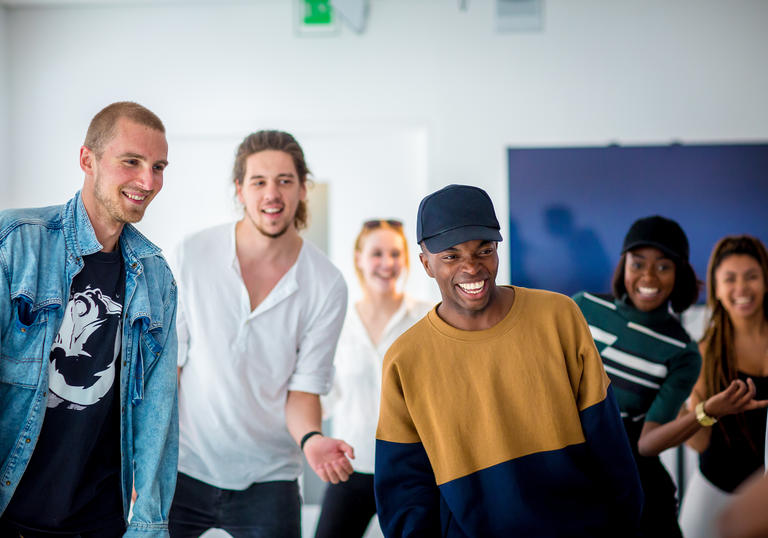Our experts include Justin McKenzie, Artistic Director of Jazz Re:freshed, Jane Beese, Head of Music at the Roundhouse and Chris Sharp, the Barbican’s Contemporary Music Programmer.
Getting started
Jane Beese was appointed Head of Music at the Roundhouse in 2015 after spending 15 years organizing music events for the Southbank Centre. She has worked with leading artists such as David Bowie, Morrissey and Radiohead and advised that to be a producer, persistence is key.
'If you want to do a 40-hour week, walk away now,’ Jane said, adding, ‘Be true to yourself. Be honest, believe in what you are doing and work with people in a way that they will want to work with you again and you will achieve some success.’
Justin McKenzie holds weekly live jazz events and an annual festival through his Arts Council-supported organization, Jazz Re:freshed. He said that when he started out, he found it important to be consistent. ‘You need to be consistent or people will forget you,’ Justin explained. ‘Even if an event you put on one week is bad and hardly anyone shows up, at least you can rectify it quickly if you hold another event the following week.’
The Barbican’s Contemporary Music Programmer, Chris Sharp, spent several years at various record companies before taking up his current role in 2008. ‘Have a vision and make connections,’ Chris said, ‘Knock on every door and let people know what you’re doing. Don’t be afraid to ask for funding. If you keep pushing the rock up the hill, eventually it will roll down.’
Be an all-rounder
While producing live music events involves an element of creative vision, all three of our experts highlighted the other important tasks and responsibilities involved. Producing live music events is ‘not just about dreaming and putting on your favourite artists,’ Chris said. Although his passion for music underpins his work, Chris believes a crucial element to being a successful producer is ‘understanding the nuts and bolts of money’.
He commented: ‘Even in an arts establishment, you have to have commercial concerns. You need to find out what the artist is worth, the capacity of the venue and how that relates to what the artist is paid.’ Chris added: ‘I do a spreadsheet for every show I do and model it to experiment with ticket numbers and prices.’
Jane also emphasized that a good producer must be an all-rounder, embodying creative, financial and logistical skills. ‘As a producer, you can’t just be looking at the creative side, or the financial, you have to have all three or have them covered in your team.’
Your reputation is key
Producing live music events often depends upon on word-of-mouth for publicity as well as interpersonal relationships with artists and agents, meaning that your reputation is key. One major faux pas, and something that producers often get wrong early on in their careers, is depending upon ticket sales to pay artists. Justin warned of the damning consequences if an event is not as popular as you hoped and you find you cannot pay. ‘The worst thing for your reputation is not paying people,’ he warned. Jane also echoed this point, adding: ‘If you don’t pay people, you can destroy ten years of hard work.’ And Chris noted that producing is a small world and that it’s important to always treat artists fairly and courteously, ‘People need to come away feeling like it was a positive experience.’
Relationships
Building a small team to discuss ideas can help you make sound decisions, Justin advises, ‘If you do it all yourself, you have no one to bounce ideas off.’ As Jazz Re:freshed has grown, it now has members covering different aspect of event production, such as sound engineering and business management. He commented, ‘Relationships are how people get where they are going. Don’t feel you have to do something alone for it to be legitimate.’
Chris advised that it is important to build up a network of like-minded people. ‘If you want to get into producing live music events, just start doing it. You’ll make connections and one thing will lead to another.’
He added: ‘Although ‘networking’ is a hideous word, what it really means is making friends. If you get talking to other people who love music and stay in touch with them, eventually you’ll build up a network of like-minded people and that ecosystem will lead to opportunities.’
Words by Zoe Efstathiou

